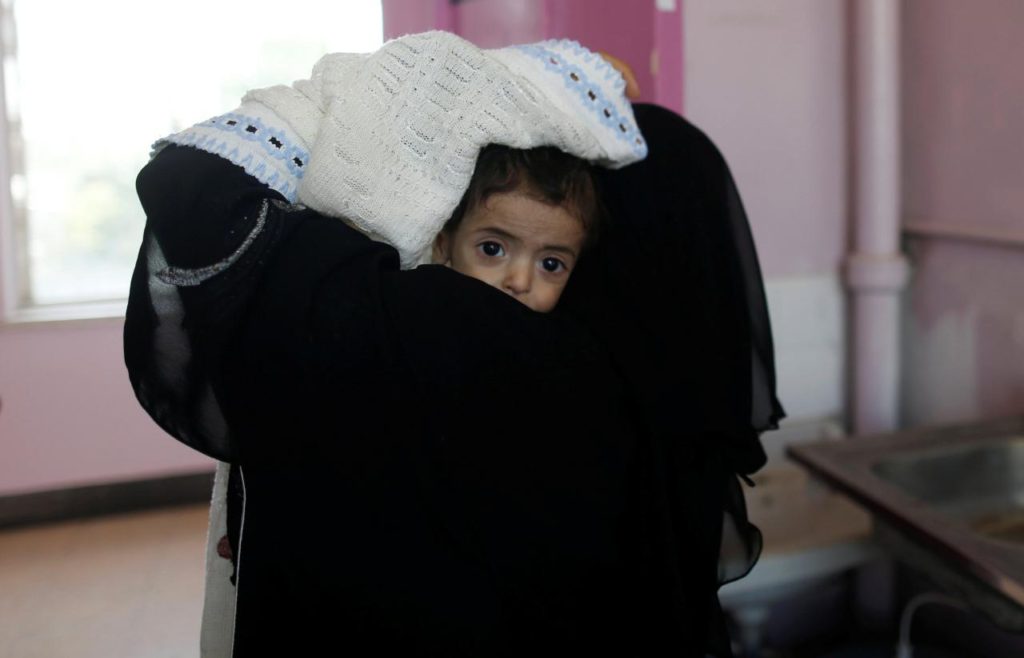SANAA — In the malnutrition ward of a hospital in the Yemeni capital Sanaa, doctors weigh toddlers with protruding rib cages and skeletal limbs.
Twenty children, most under the age of 2, being treated at the ward in Sab’een Hospital are among hundreds of thousands of children suffering from severe malnutrition in the impoverished country that has been ravaged by a more than three years of war.
11 million children are facing the threat of food shortages, disease, displacement and acute lack of access to basic social services
“The conflict has made Yemen a living hell for its children,” Meritxell Relano, UNICEF representative in Yemen, told Reuters.

A woman carries a child at the malnutrition ward of al-Sabeen hospital in Sanaa, Yemen September 11. REUTERS/Khaled Abdullah
She said more than 11 million children, or about 80 percent of the country’s population under the age of 18, were facing the threat of food shortages, disease, displacement and acute lack of access to basic social services.
“An estimated 1.8 million children are malnourished in the country,” she said. “Nearly 400,000 of them are severely acute malnourished and they are fighting for their lives every day.”
A coalition of Arab states, led by Saudi Arabia and the United Arab Emirates, intervened in Yemen’s war in 2015 against the Houthi group who are supported and backed by Iran, after they drove Abdrabbuh Mansour Hadi’s government out of the capital Sanaa. Hadi is currently seeking refugee in Riyadh, the Saudi capital.
The war has unleashed the world’s most urgent humanitarian crisis in the nation of 28 million, where 8.4 million people are believed to be on the verge of starvation and 22 million people are dependent on aid.
The Saudi coalition has imposed stringent measures on imports into Yemen to prevent the Houthis from smuggling weapons, but the checks have slowed the flow of commercial goods and vital aid into the country.
Saudi Arabia and the UAE say they are providing funds and supplies to support aid efforts in Yemen. The Houthis blame the coalition for choking off imports into the country.
In Sab’een hospital a toddler in diapers lay wrapped in blankets with a tube inserted in the child’s nose. Another child cried while being lowered naked unto a scale to be weighed.
The families of the children declined to speak to the media.
“The situation of the families without jobs, without income and in the middle of the war is catastrophic,” Relano said.
She said UNICEF had provided more than 244,000 severely malnourished children under the age of 5 with therapeutic treatment since the beginning of 2018, in addition to micronutrient treatment to over 317,000 children under 5.
“The human cost and the humanitarian impact of this conflict is unjustifiable,” U.N. humanitarian coordinator Lise Grande said in a statement on Thursday. “Parties to the conflict are obliged to do absolutely everything possible to protect civilians and civilian infrastructure and ensure people have access to the aid they are entitled to and need to survive.”






Leave a Reply